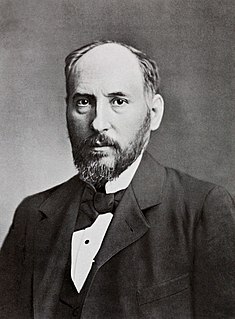A Quote by George Steiner
When the modern scholar cites from a classic text, the quotation seems to burn a hole in his own drab page.
Related Quotes
My readers, who may at first be apt to consider Quotation as downright pedantry, will be surprised when I assure them, that next to the simple imitation of sounds and gestures, Quotation is the most natural and most frequent habitude of human nature. For, Quotation must not be confined to passages adduced out of authors. He who cites the opinion, or remark, or saying of another, whether it has been written or spoken, is certainly one who quotes; and this we shall find to be universally practiced.
For me a page of good prose is where one hears the rain. A page of good prose is when one hears the noise of battle.... A page of good prose seems to me the most serious dialogue that well-informed and intelligent men and women carry on today in their endeavor to make sure that the fires of this planet burn peaceably.
People even split up by text message, they dump each other by text. Everything seems so disposable, so throwaway, but you have to engage with that if you're writing about the modern world. You've also got all these pop references that you feel obligated to make. They're just part of the bricolage of the whole thing, whether or not these are actually significant elements themselves.
I'm not naive. Sometimes interpretation is more of an art than a science. There are those who would label interpretation absolutely anything a judge might do or, two, the text of a statute or the Constitution. But it seems to me there comes a point where a judge is using his own creativity and purpose and crosses the line between interpreting a text written by somebody else and in a sense creating something new.
The art of quotation requires more delicacy in the practice than those conceive who can see nothing more in a quotation than an extract. Whenever the mind of a writer is saturated with the full inspiration of a great author, a quotation gives completeness to the whole; it seals his feelings with undisputed authority.
Text is linear; it is black and white; it doesn't zoom around the page in 3-D; it isn't intelligent by itself; in fact, in terms of immediate reaction it is quite boring. I can't imagine a single preliterate was ever wowed at the first sight of text, and yet text has been the basis of arguably the most fundamental intellectual transformation of the human species. It and its subforms, such as algebra, have made science education for all a plausible goal.
Heroes and scholars represent the opposite extremes... The scholar struggles for the benefit of all humanity, sometimes to reduce physical effort, sometimes to reduce pain, and sometimes to postpone death, or at least render it more bearable. In contrast, the patriot sacrifices a rather substantial part of humanity for the sake of his own prestige. His statue is always erected on a pedestal of ruins and corpses... In contrast, all humanity crowns a scholar, love forms the pedestal of his statues, and his triumphs defy the desecration of time and the judgment of history.







































